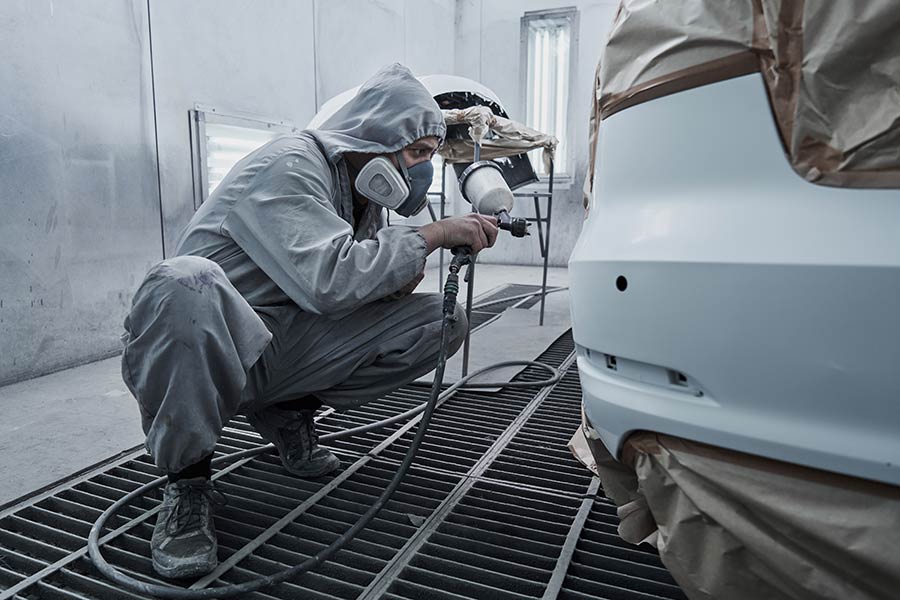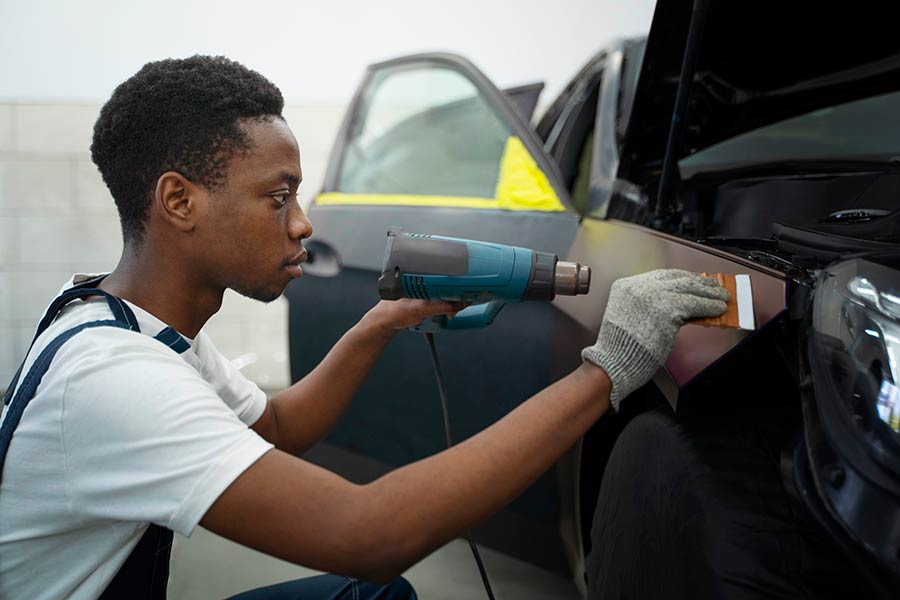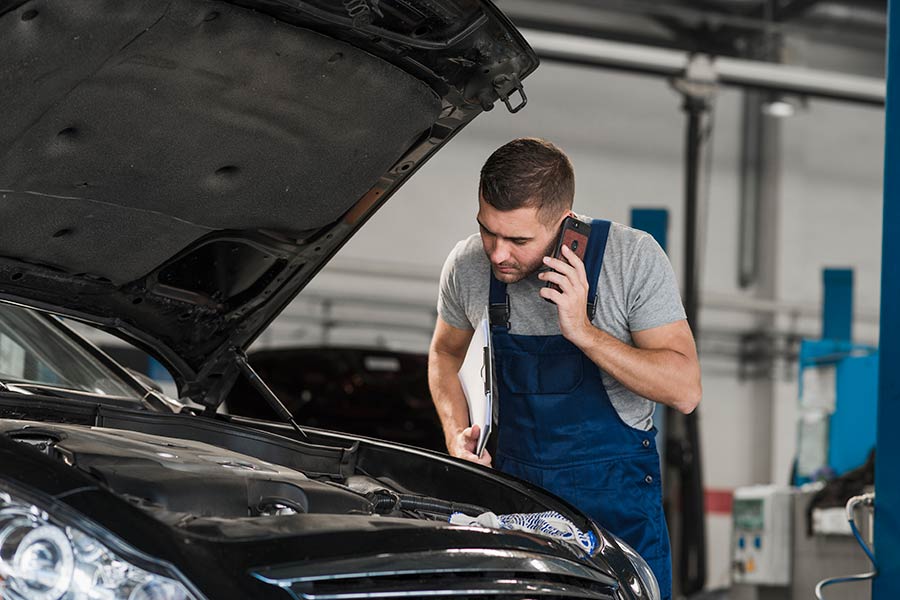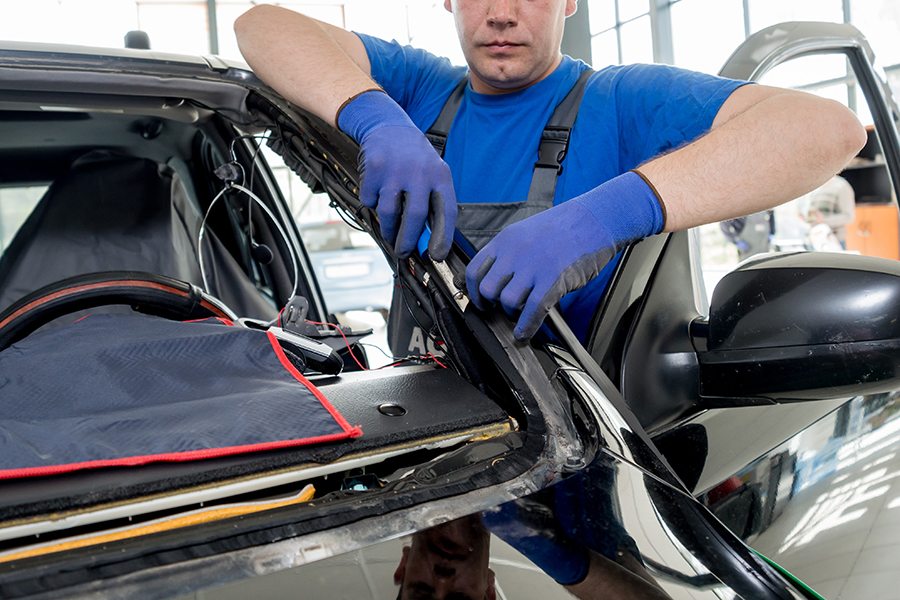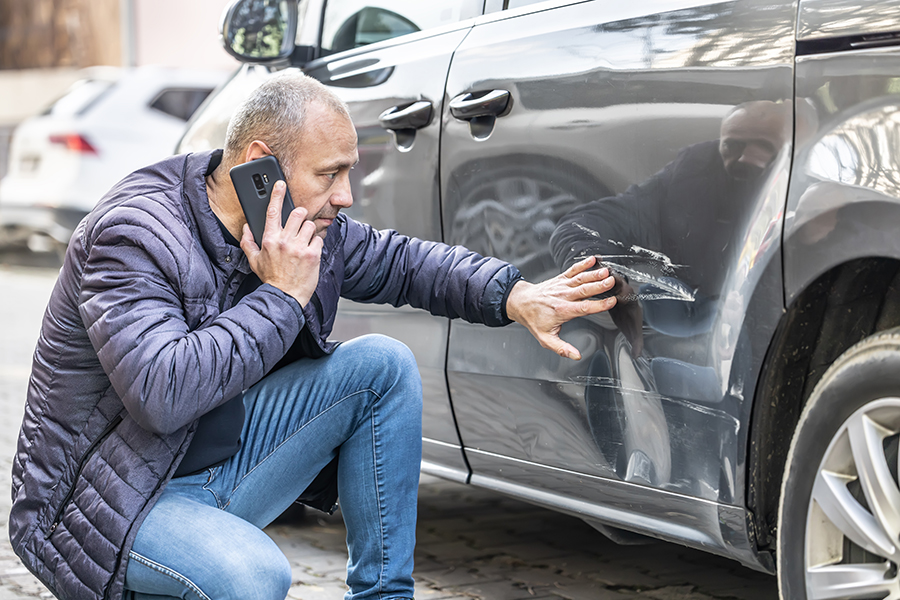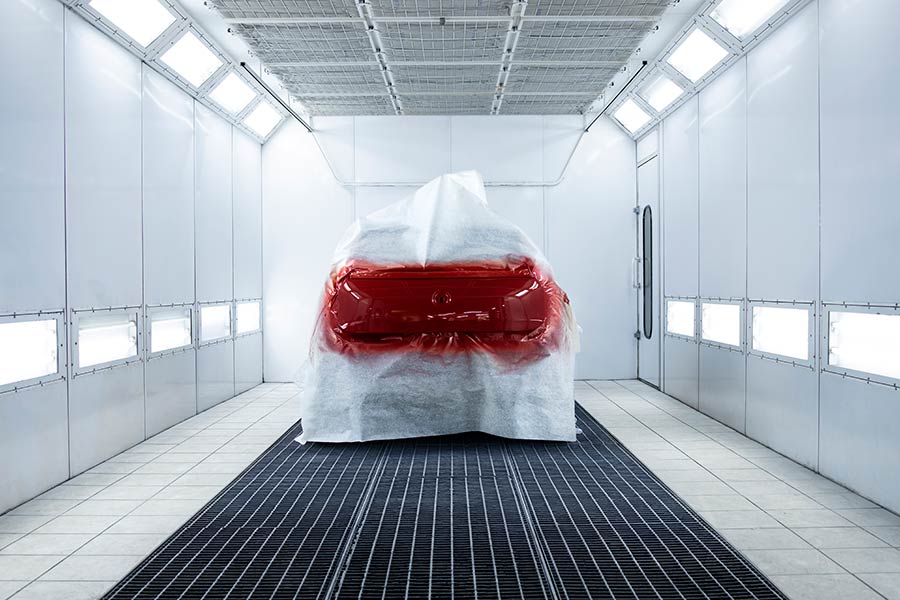In the golden era of automobiles, restoring a classic car was often seen as a privilege for the elite. Fast forward to today, and affordable auto body restoration has shifted gears, becoming accessible to enthusiasts across the board. This transformation is fueled by advancements in technology and a growing community of DIY restorers. Whether it's reviving an old family sedan or bringing back the shine to a vintage muscle car, the journey of restoration is now within reach without breaking the bank. Let's dive into how you can embark on this rewarding adventure, turning time-worn vehicles into road-worthy treasures.
Key Takeaways
-
Find Good Shops: Look for shops with good reviews and fair prices. Ask friends and check online.
-
Save Money: Use tips to save on costs, like comparing prices and asking for discounts.
-
Be Smart: Avoid common mistakes by knowing what to watch out for, like hidden fees.
-
Understand Costs: Learn what affects repair prices to better plan your budget.
-
Choose Wisely: Not all repairs are worth it. Think about your car's value and repair costs.
-
Build Relationships: A good relationship with a shop can lead to better service and deals.
-
Use Insurance: Know how your insurance can help pay for repairs and save you money.
-
Think Ahead: Always consider how today's choices affect your car's future.
Identifying Quality Shops
Repair Estimates
Gathering multiple estimates is a smart move. It lets you compare prices easily. Make sure each estimate covers both labor and parts. This detail matters a lot. Also, find out if the estimate sticks or could change later.
Labor and parts should be clear in the estimate. Ask questions if anything seems unclear.
Labor Costs
Labor costs can vary. Some shops charge by the hour, others by the job. Knowing this helps you understand your bill better.
Ask about the mechanic's experience and qualifications. More skilled technicians might cost more but do better work.
Compare what independent shops and dealerships charge for labor. Sometimes, one is cheaper than the other.
Parts Supply
Choosing between OEM (original equipment manufacturer) and aftermarket parts is important. OEM parts usually fit better but cost more.
Check how soon needed parts can arrive. Delays can make repairs take longer.
Talk about part warranties too. They can save money if something goes wrong later.
Shop Selection
Independent Shops
Look into local independent shops for their special skills. Friends' recommendations or online reviews can guide you here.
Make sure any shop you consider has the right certifications and insurance.
Insurance Discounts
Your insurance might have deals with certain auto body shops. These partnerships could mean lower repair costs for you.
Ask your insurer about preferred repair places. Using them might also affect your insurance policy in some way.
Saving Strategies
Own Parts Supply
You can cut costs by finding your own parts. Before you buy, check if the repair shop is okay with using them. Using your parts might affect warranty coverage, so it's wise to understand this.
e shops may not accept outside parts due to policy or quality concerns. This approach requires research but can lead to significant savings.
Repair Prioritization
Talk with the shop about what repairs are a must and which can wait. Always put safety first. This means fixing brakes or lights before worrying about scratches.
Creating a repair timeline helps manage expenses without compromising your car's condition. It allows for better financial planning and ensures critical issues are addressed promptly.
Insurance Opportunities
Look into your insurance for body repair coverage. Adding comprehensive coverage could save money in the long run. Sometimes, talking to your insurer directly can lead to a better deal on claims.
Understanding your policy's fine print is key here. It might cover more than you think, especially for accidents or vandalism.
Refinancing Options
Refinancing your car loan might free up cash for repairs. Check if lower interest rates outweigh any fees involved. Personal loans are another route but compare terms carefully.
This strategy works best when repair costs are high, and current loan conditions are not favorable. It requires good credit and should be considered carefully to avoid financial strain.
Avoiding Pitfalls
Warning Signs
Learn to recognize signs of a failing auto body repair job. It's crucial. Look for paint mismatch, where colors don't quite match up. This is a big red flag. Also, check if the car's parts align correctly. If they don't, it's not a good sign.
After repairs, listen for any unusual noises when driving. They shouldn't be there. Always inspect the repair work in daylight. This helps you see clearly.
Cheap vs Quality
Understand the trade-offs between low-cost repairs and quality outcomes. It's important. Don't cut corners on critical safety repairs just to save money. This can be dangerous.
Research shops that offer good value without compromising on quality. Some places do offer both. They're worth looking for.
Future Costs
Consider the long-term impact of choosing cheaper repair options. It matters a lot for your car's future. Think about how your choice affects the car’s resale value down the line.
Budget for potential additional repairs stemming from initial cost-cutting. Sometimes, saving now means spending more later.
Repair Costs Factors
Shop Types
Dealership body shops often come with the promise of factory-trained technicians and the possibility of repairs covered under warranty. This can be reassuring for many car owners. However, these benefits might come with a higher price tag.
Independent shops are usually more budget-friendly. They offer competitive rates and often have mechanics with diverse expertise. For cars out of warranty, they're a go-to choice for many.
Specialty shops focus on specific types of repairs or models of cars. They're ideal for unique or vintage vehicles needing particular care.
Mobile repair services stand out for convenience. They handle minor fixes right at your doorstep, often at lower costs than traditional shops.
Labor Rates
Labor rates can vary widely by region due to differences in the cost of living. It's crucial to understand this when budgeting for repairs.
Shops determine their rates based on several factors: the experience level of their technicians, shop location, and overhead costs. Always ask how a shop sets its rates to avoid surprises.
It's important to compare labor rates as part of your overall repair cost assessment. However, don't choose a shop based solely on low rates. Quality and reliability matter too.
Parts Prices
OEM (Original Equipment Manufacturer) parts generally cost more than aftermarket alternatives. But they offer a perfect fit and come with manufacturer warranties.
For those looking to save, aftermarket parts can be a good option. They're usually less expensive but still meet or exceed OEM standards.
Refurbished or used parts present another way to save money without compromising quality much. However, availability may vary, and they might affect your car's warranty or longevity differently than new parts.
Choosing Repairs Wisely
Multiple Estimates
Getting more than one estimate is crucial. It lets you compare prices and services. Don't settle for the first option.
By comparing, you can negotiate better deals. Make sure each estimate includes the same work. This ensures a fair comparison.
Cost Analysis
Understanding the breakdown of costs is important. It includes parts, labor, and extra fees. This helps you see where your money goes.
Look for ways to cut costs safely. The breakdown shows you the value each shop offers. Safety should never be compromised for a lower price.
Turnaround Time
Knowing how long repairs will take matters. Shops give estimated times. Ask about this early on.
Learn how they decide job order. This affects timing. If repairs take long, think about other transport options.
Building Relationships
Shop Loyalty
Building a strong relationship with a trusted auto body shop can lead to significant savings over time. Many shops offer loyalty programs or benefits for repeat customers, such as discounts on services or parts. By consistently bringing your vehicle to the same shop, you not only build trust but also create an opportunity to negotiate better terms. This could include priority service or more favorable pricing on labor and materials.
Shops value loyal customers and may be more willing to go the extra mile for those who regularly use their services. It's worth discussing what kind of loyalty rewards they might offer.
Communication
Effective communication is key during any auto body restoration project. Make sure you receive regular updates about the progress of your car's repairs. If there are technical terms or procedures you don't understand, don't hesitate to ask for explanations.
It's also important to clarify the shop's policy regarding customer approval before proceeding with additional repairs. This ensures that you won't be surprised by unexpected costs once the work is completed.
Negotiation Skills
Negotiating can lead to better deals on your auto body restoration. Don't be afraid to discuss prices or ask about using upgraded parts. Having multiple estimates from different shops can give you leverage in these negotiations.
Remember, being prepared to walk away if you can't reach a satisfactory agreement is a powerful negotiating tool. Shops are often willing to lower their prices or offer additional services to keep your business.
Insurance and Savings
Discounts Explored
Asking about current promotions can lead to unexpected savings. Many auto body shops offer seasonal discounts or package deals. Don't hesitate to inquire.
Asking for discounts on cash payments might also lower the costs. Cash transactions often save businesses on processing fees, which they might pass on to you as discounts.
Exploring group or membership discounts can be fruitful. If you're part of AAA or serve in the military, mention it. You could unlock special rates.
Policy Evaluation
Regularly reviewing your auto insurance policy ensures you have adequate coverage. It's easy to overlook, but essential for peace of mind.
Consider adjusting your deductible. A higher deductible might lower your premiums, leading to potential savings over time.
Evaluating the cost-benefit of adding riders for auto body repairs is wise. These add-ons can cover repairs not usually included, possibly saving you money in the long run.
Savings Strategies
Planning for routine maintenance is crucial. It prevents costly repairs by catching issues early.
Setting aside a repair fund each month makes large expenses more manageable. Think of it as a small investment in your vehicle's longevity.
Using tax refunds or bonuses to cover or offset repair costs is a smart move. It's an effective way to handle unexpected expenses without disrupting your budget.
Final Considerations
Essential Questions
Before choosing a shop for your auto body restoration, ask about the warranty. This ensures you're covered if something goes wrong later.
Find out who will fix your car. Their skills matter a lot. Ask about the technicians' qualifications and experience.
You should also request a clear explanation of how they'll repair your car and how long it will take. This helps you plan ahead.
Estimate Comparison
When comparing estimates, use a checklist to keep things fair. Look at each item side by side.
Pay close attention to labor hours and parts prices. Differences here can add up quickly.
Also, think about the shop's reputation and how they treat their customers. These factors are just as important as the cost.
Quality Assurance
Learn how the shop checks the quality of their repairs. Good shops have strict processes for this.
Ask about inspections after they finish working on your car. Make sure there's a guarantee.
Find out what happens if you're not happy with the repair work. It's important to know your options.
Summary
Navigating the maze of affordable auto body restoration doesn't have to be a headache. You've got the lowdown on spotting top-notch shops, saving bucks without cutting corners, and steering clear of common traps. Remember, the price tag on repairs isn't set in stone; it's all about what you know and who you know. By choosing your battles with repairs and fostering solid relationships with shops, you're not just fixing up your ride; you're investing in its future. And don't forget, pairing up with your insurance can stretch those dollars even further.
hat's the next step? Hit the ground running. Start chatting with local shops, compare notes, and don't shy away from asking the tough questions. Your car's comeback story is just a decision away. Let's make it a good one.
Frequently Asked Questions
How do I identify a quality auto body restoration shop?
Look for shops with great reviews, certifications, and warranties. It's like finding a needle in a haystack, but the effort pays off.
What strategies can help me save on auto body restoration?
Compare quotes and ask about discounts or lesser-known savings options. Think of it as hunting for treasure—every little bit helps.
What are common pitfalls to avoid in auto body restoration?
Skipping research or choosing based solely on price can lead to shoddy work. It's like eating at a restaurant just because it's cheap, not good.
What factors affect the cost of car body repairs?
The extent of damage, parts needed, and labor rates play big roles. Imagine it as ingredients in a recipe—the more complex, the pricier.
How should I choose which repairs to prioritize?
Focus on safety and vehicle functionality first. It’s like triaging in an emergency—address the most critical issues first.
Why is building relationships with repair shops important?
It leads to better service and potentially discounts down the line. Think of it as making friends with the baker for the best bread.
How does insurance contribute to saving on restoration costs?
Insurance can cover some costs depending on your policy. It's like having a safety net when walking a tightrope—there to catch you financially.
